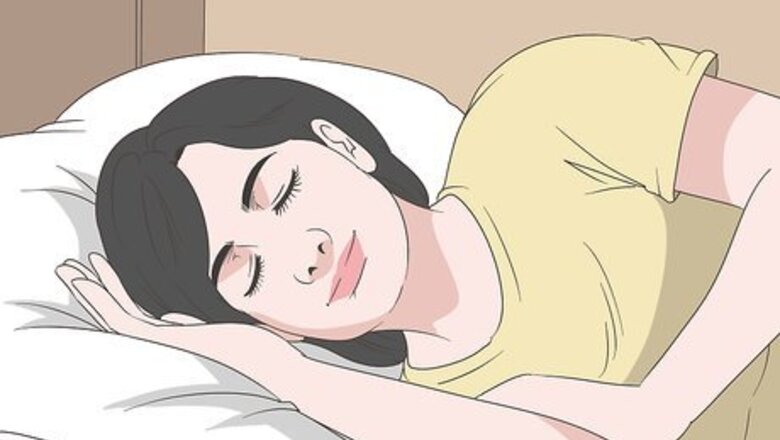
views
X
Trustworthy Source
HelpGuide
Nonprofit organization dedicated to providing free, evidence-based mental health and wellness resources.
Go to source
This can be a real drag on your daily life, so you should get it treated as soon as you can. The go-to treatment for sleep apnea is a CPAP machine, which delivers air to your lungs and keeps your airway open at night.[2]
X
Trustworthy Source
Cleveland Clinic
Educational website from one of the world's leading hospitals
Go to source
However, even if you use this machine, your doctor will probably suggest some lifestyle changes to fight your sleep apnea. These could make a big difference, so try them out for yourself to support your health.
Healthy Sleep Habits
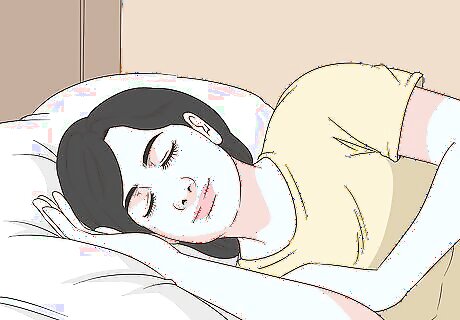
Sleep on your side instead of on your back. Changing your sleeping position might be tough, but it could make a big difference. If you sleep on your back, it’s easier for your tongue to slide back and block your airway, which could trigger your sleep apnea. Try to make yourself sleep on your side instead. You can try a few tricks to keep yourself from flipping onto your back while you’re asleep. One is placing a pillow along your back. Another is the “tennis ball trick” where you sew a tennis ball to the back of your shirt to prevent yourself from sleeping on your back.
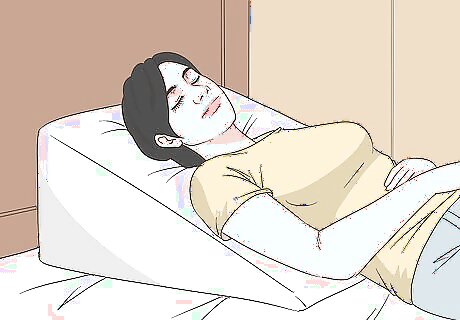
Prop your head up while you sleep. Either raise the head of your bed 4–6 in (10–15 cm) or place a foam wedge under your upper body to elevate your head while you sleep. This can prevent your tongue from tilting back and blocking your airway, which is a common trigger for sleep apnea.
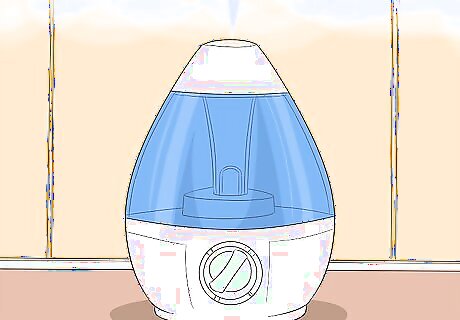
Use a humidifier in your bedroom. This could relieve some of your symptoms. It's especially helpful if you use a CPAP machine, because these machines tend to dry out your lips, mouth, and nose. Keeping your airway moist could make you more comfortable. If you use a CPAP machine, newer models usually come with a built-in humidifier.

Gargle with saltwater. This could soothe and shrink your tonsils, making your airway bigger. With more space, your airway is harder to block and you can breathe easier at night.

Stick to a regular sleeping schedule. Sleep apnea tends to improve when you get enough sleep, and sticking to a consistent schedule helps with that. Try to get up and go to bed around the same time each day, even on weekends, to maintain a regular schedule.
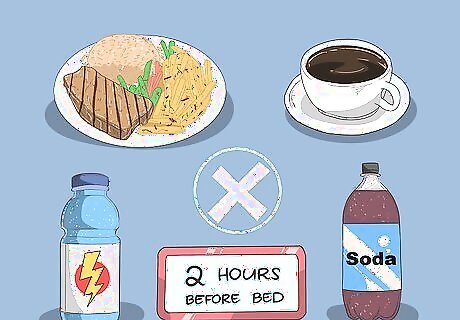
Avoid caffeine and heavy meals within 2 hours of bed. Both of these could make your sleep apnea worse. If you have a habit of eating late, try to stick with lighter meals and snacks.
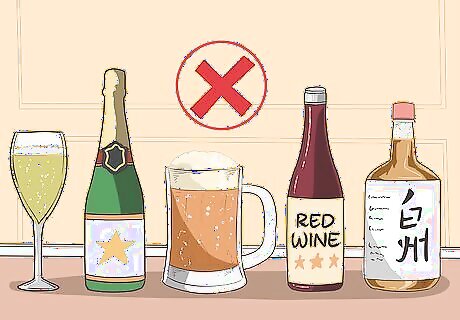
Stop drinking alcohol before bed. Alcohol relaxes the muscles in your throat, which could block your airway and interfere with your breathing. If you regularly drink, cut back and stop a few hours before bed.
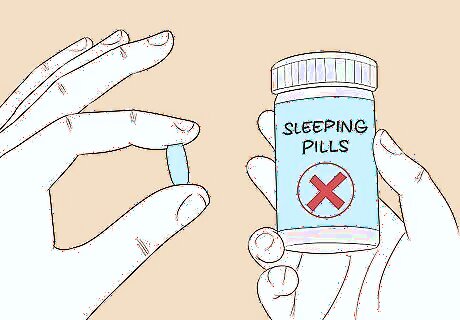
Don’t use sleeping pills to fall asleep. These drugs also relax your throat muscles and could make sleep apnea worse. If you have trouble falling asleep, ask your doctor for healthy suggestions on sleeping better.
Lifestyle Changes
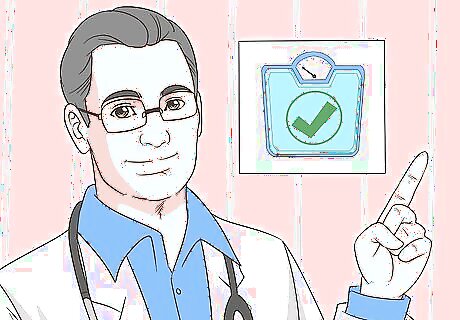
Lose weight if you have to. This might be a big lifestyle change, but being overweight is one of the main causes for sleep apnea. If you’re overweight or obese, then losing even a little bit of weight could make a big difference. Talk to your doctor about the ideal weight loss program for you. While you should lose weight if you have to, crash or extreme dieting is dangerous. These diets are tough on your heart and there’s a high risk of gaining the weight back. Stick with a slow, steady weight loss program instead.

Exercise most days of the week. While exercise helps you lose weight, regular activity could relieve sleep apnea even without weight loss. Exercise also helps improve the length and quality of your sleep. Stay active and try to get 30 minutes of exercise on most days of the week. You don’t need to start an intense exercise program. Just a daily walk will work fine. Strength training and yoga could improve your breathing and strengthen your neck muscles, which might also help with sleep apnea. Reduce your BMI to below 30 is the best at-home way to help reduce the severity of sleep apnea.

Follow a healthy diet. This can help support your weight-loss goals and maintain a healthy heart. Since sleep apnea can increase your blood pressure and put you at a higher risk for a heart attack, supporting your heart with a healthy diet is very important. Design a diet rich in fresh produce and lean proteins but low in fat for the best results. The Mediterranean diet, which is high in fish, fruits and vegetables, whole grains, and healthy fats, is especially healthy and provides a good guide for you. Cutting out mucus-producing foods could help as well.

Open your nasal passages by rinsing your sinuses. Try using nasal spray or a neti pot. This clears mucus out of your nasal passages, which could make it easier for you to breathe at night. You could also use nasal strips to open your airway while you sleep.
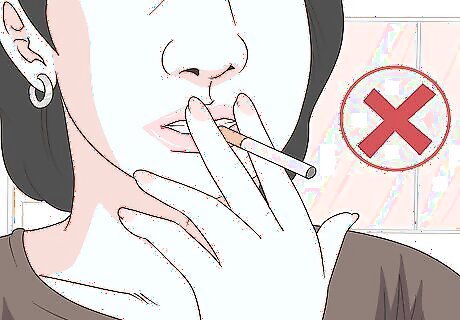
Quit smoking. Smoking makes it harder to breathe and puts you at a higher risk for sleep apnea. It’s best to quit as soon as possible to avoid health problems. Secondhand smoke can also cause health problems, so don’t let anyone smoke in your home either.
Strengthening Your Airway
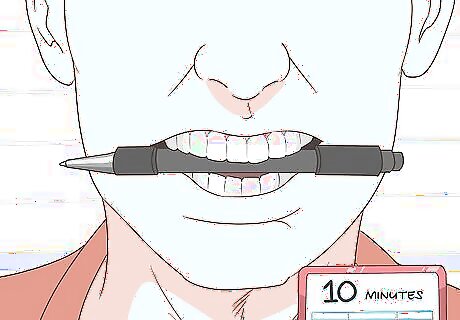
Tighten your mouth and throat muscles before going to bed. This could help keep your airway open at night. Try chewing gum or holding a pen between your teeth for 10 minutes before going to bed to see if this helps.

Press your tongue to the roof of your mouth. This easy exercise strengthens your neck and throat muscles. Press your tongue flat against the roof of your mouth and hold it there for 3 minutes each day. If this starts getting easy for you, try pressing a little harder for a better workout. It might take a few weeks of consistent mouth and throat exercises to make a big difference, so stick with it.
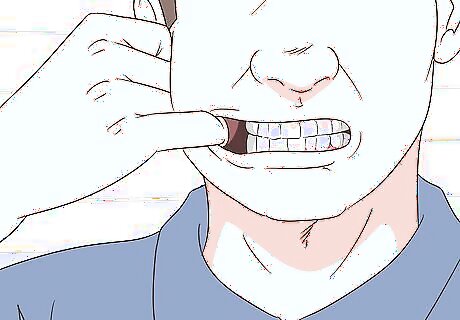
Pull your finger with your cheek. This also strengthens your upper throat muscles. Put your finger inside your mouth and gently pull one of your cheeks to the side. Then flex your cheek muscle to pull back on your finger. Repeat this 10 times, then switch sides. You can repeat this exercise 3 times in a row for a good workout. Make sure you wash your hands before and after putting them in your mouth.
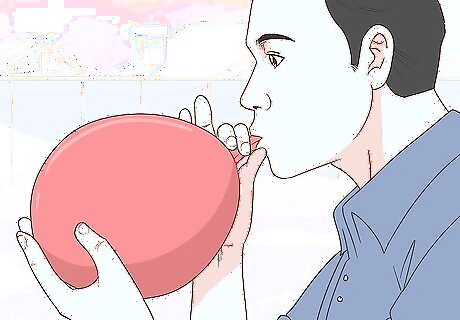
Blow up a balloon to strengthen your airway. This might sound weird, but blowing up a balloon is an easy and fun way to exercise the muscles in your airway. Put your lips to the balloon, breathe in through your nose, and blow the balloon up without taking it away from your lips. This is a simple exercise and you can repeat it several times throughout the day.
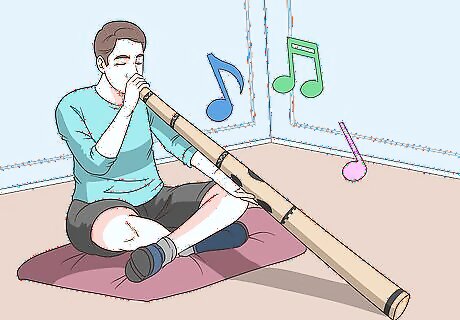
Sing or play the didgeridoo. Both of these activities can strengthen your throat and the soft tissues in your airway. They can be fun activities to help you breathe easier at night.










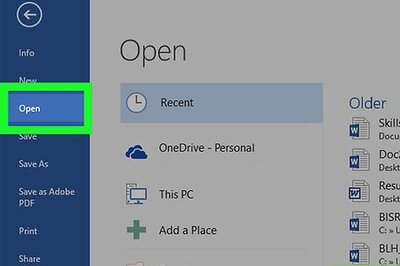

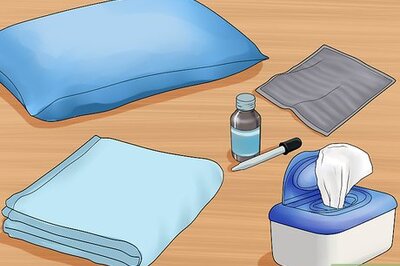






Comments
0 comment